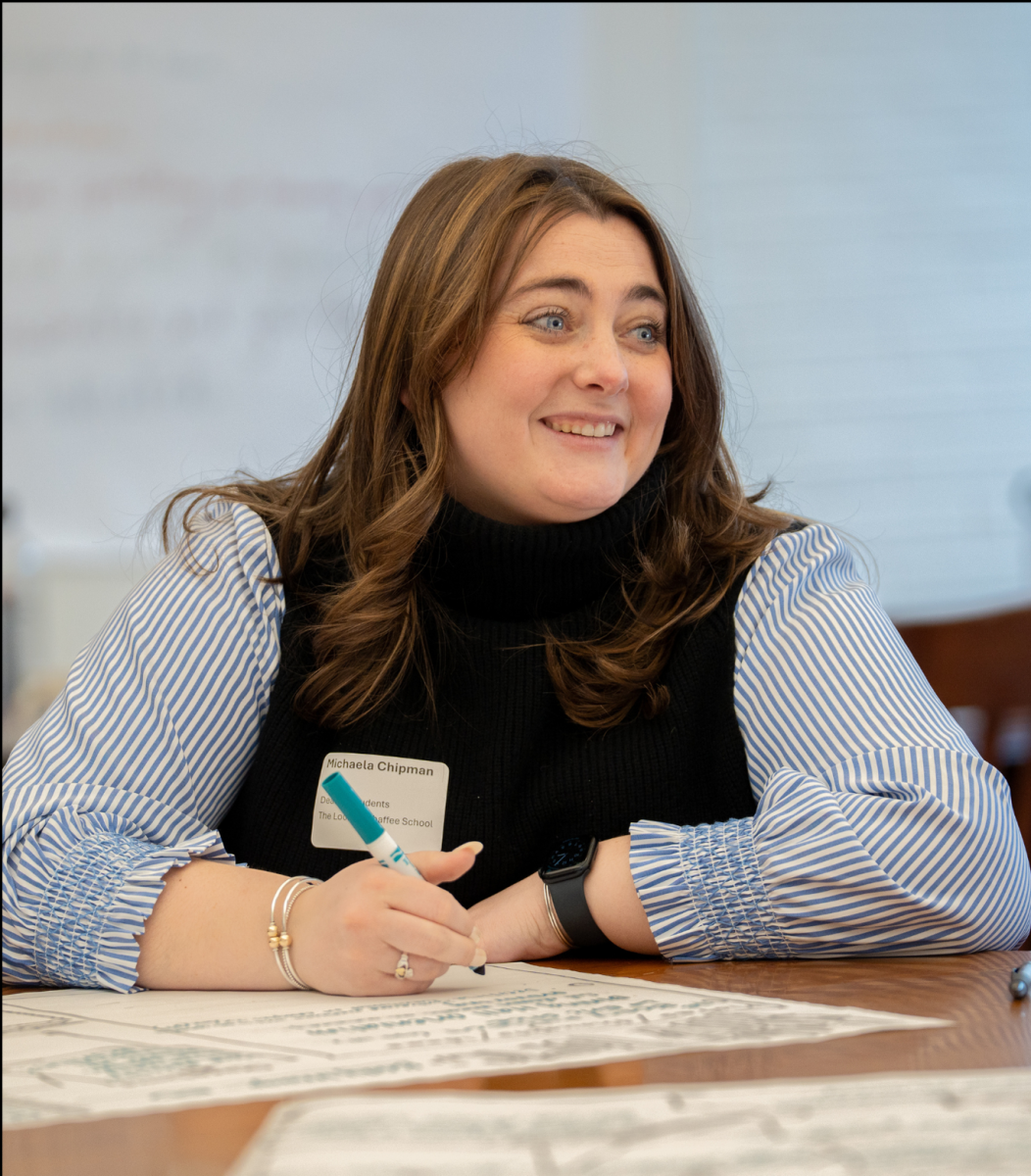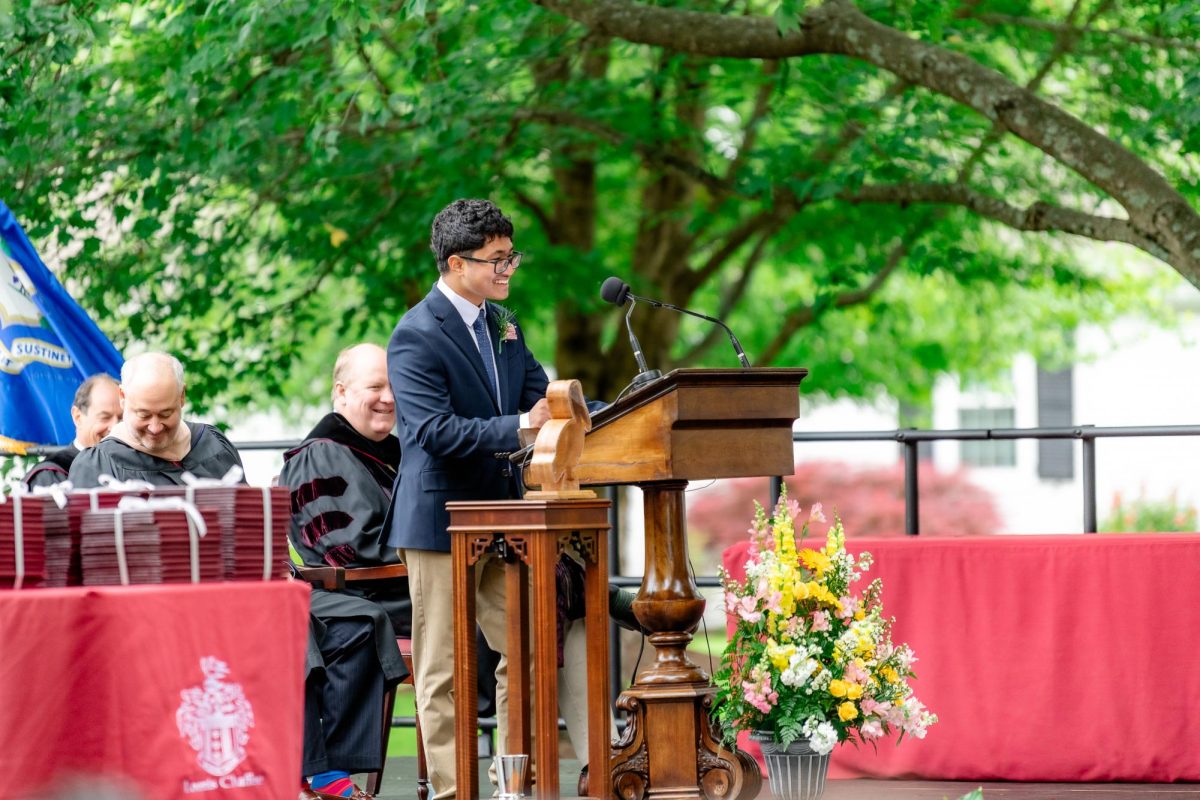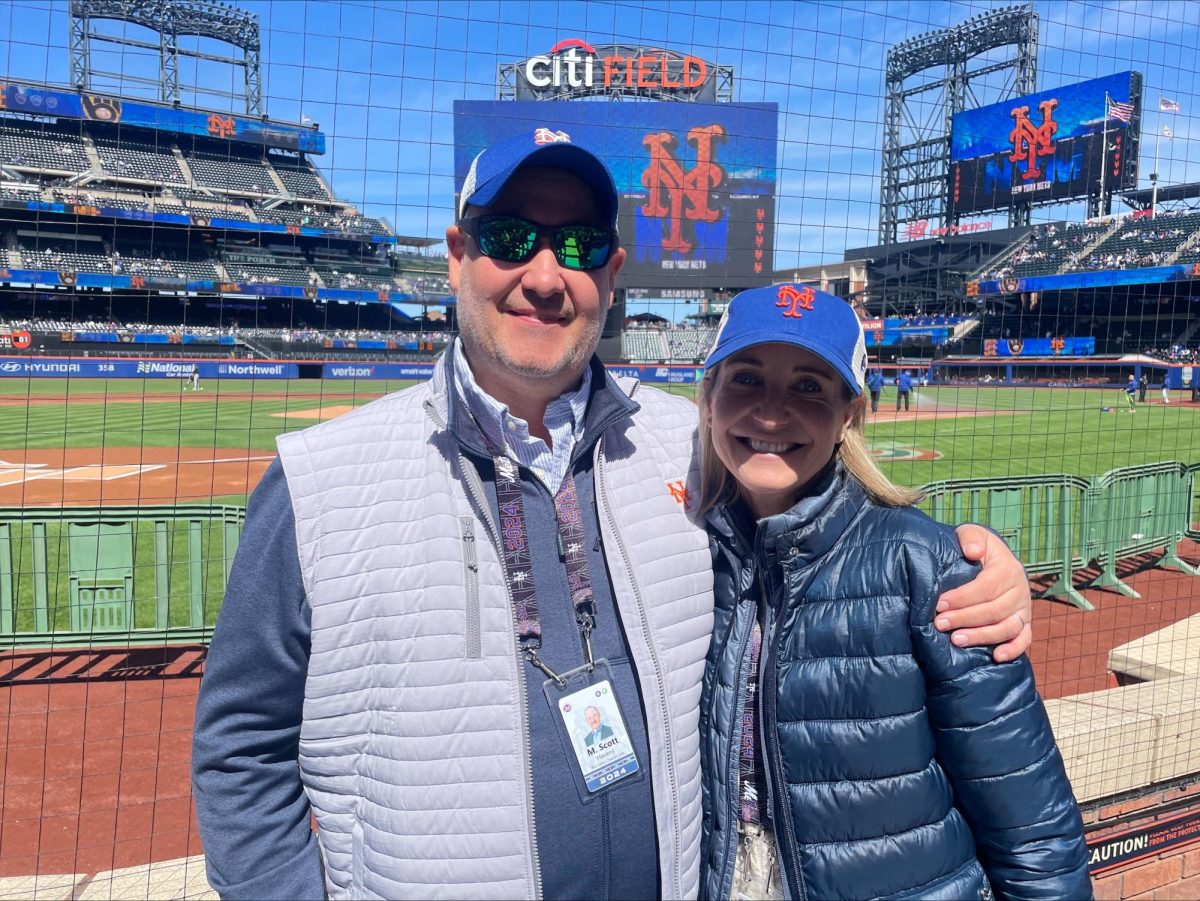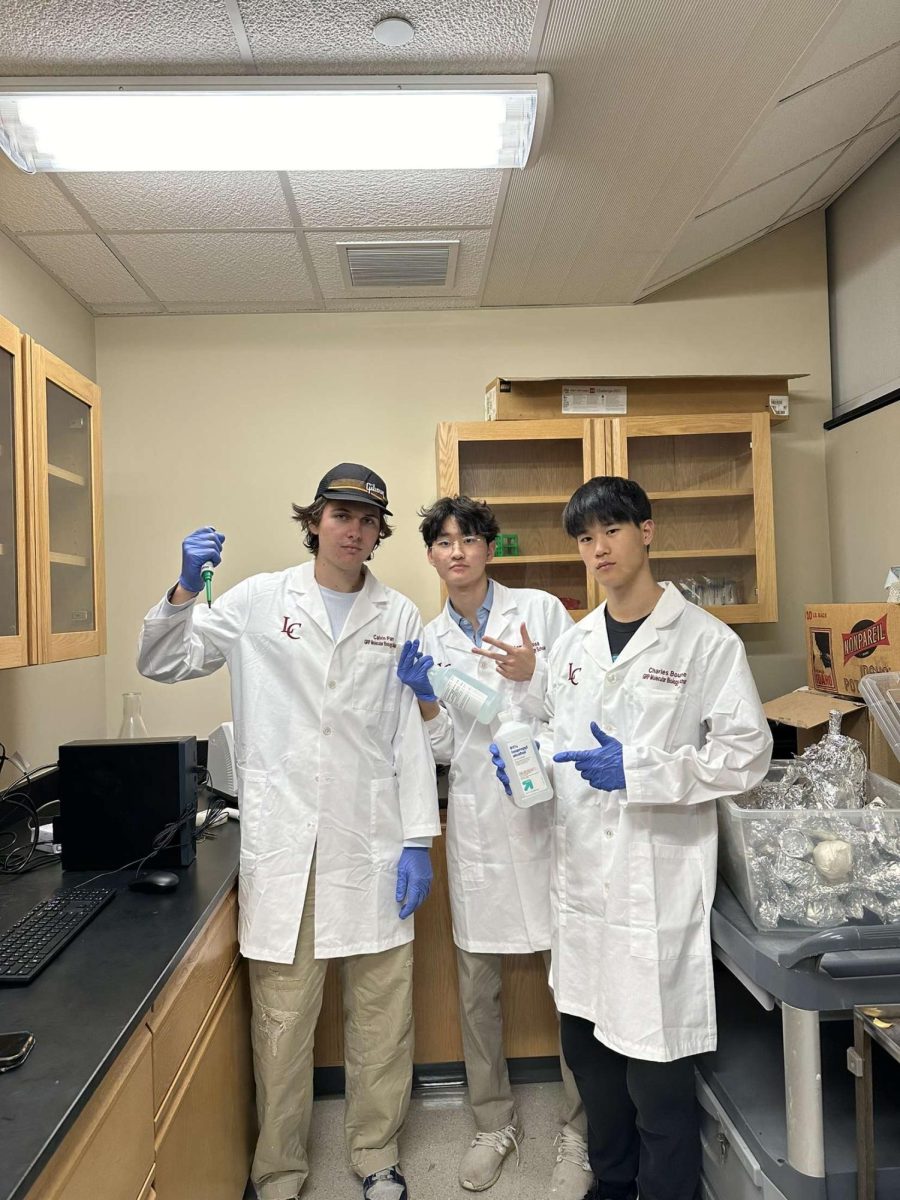Sitting quietly on the first floor of the library, the Henry R. Kravis ’63 Center for Excellence in Teaching is a space not known to some students yet integral to their learning experience at Loomis Chaffee.
“Everything we do in the Kravis Center is all about student learning. Everything we do here is focused on creating a better experience for students in the classroom,” said Ms. Sara Deveaux, Director of the Kravis Center.
In 2010, Dr. Sheila Culbert, the Seventh Head of School, founded the Kravis Center to create an open space for faculty members to discuss pedagogy and share teaching practices. The center, initially led by Mr. Scott MacClintic, gradually expanded into a collaborative team of five teachers over the fifteen years.
“We have Dr. [Fiona] Mills in charge of DEI curricular and pedagogical development … Matthew Johnson who oversees all of our academic technology … Rachel Nisselson who oversees our Penn Fellow program and also our instructional coaching program … Ned Heckman who helps co-facilitate the new faculty cohort with me,” explained Ms. Deveaux, who joined the Kravis Center as an associate director in 2017 and then became the director in 2018.
Despite the expansion in size, the Kravis Center perfectly encapsulates Dr. Culbert’s vision: to construct a space that inspires, cultivates, and sustains excellence in teaching. Aligning to this vision, the Kravis Center organizes four to five professional growth workshops each year for teachers to explore different pedagogical styles.
“We aim to instill and sustain in our teachers the same growth mindset that we aim to instill in our students,” shared Ms. Deveaux, “so all the pedagogical practices that we study in here are all research-informed, meaning that we study mind-brain education science and the cognitive science of learning.”
These workshops also address heated topics in education, such as the role of artificial intelligence in student learning. “ On March 24, we had a speaker named Peter Nielson come in and we spent the morning with Peter talking about the realities of AI,” noted Ms. Deveaux. Inspired by Nielson’s talk, faculty members experimented with AI to create their lesson plans and discussed the parameters, shortcomings, and possibilities of integrating AI into the classroom. The Kravis Center will also sponsor the Generative AI Symposium this June, an event hosted by Loomis that welcomes educators from New England and beyond.
Other signature programs of the Kravis Center include the new faculty cohort, in which experienced faculty members offer hands-on support to new teachers; “Coffee with Colleagues,” an informal gathering every Thursday for faculty to discuss specific aspects of teaching; and Monday Musings, a free newsletter written and compiled by Kravis Center staff and occasional guests.
“We also run an open classroom week usually twice a year … when we invite teachers to open their classrooms so that others can come in, observe, and learn,” Dr. Mills added, “[The center is] a really wonderful asset that not every school has and certainly not to the level that our center is designed.”
At the heart of all these multifaceted programs is an unwavering commitment to student wellbeing at Loomis—to ensure that each student’s voice, experience, and identity is respected and championed. A culminating exemplification of this value is the diversity, equity, and inclusion initiatives established by the Kravis Center.
“ In 2020, in response to the Black Lives Matter protest and the real reckoning with racial injustice that was happening, Dr. Culbert created two new positions in the Kravis Center that were dedicated to helping faculty incorporate DEI into their classroom and their curriculum,” said Dr. Mills. After three years of careful planning, the center launched the DEI audit program, which works with faculty to assess their everyday classroom environment and curriculum design concerning equity and inclusion.
“Some of the things that we talk with the faculty a lot about is how we create a sense of belonging in our classroom space for our students,” said Dr. Mills. “Are students from a broad range of identities able to see themselves in our classroom materials? Are we also providing materials so that majority-identifying students can see the perspectives of others?”
In addition to diversifying teaching content, faculty members strive to make their classrooms a safe space where students feel welcome and validated. The rapport, trust, and companionship allow students to engage in harder, challenging conversations in meaningful, respectful ways.
Ultimately, excellence in teaching fosters excellence in academic scholarship and critical thinking. Through its research-driven, comprehensive professional development opportunities and clear vision oriented toward equity and wellbeing, the Kravis Center makes teaching an asset that leaves a lasting impact on Loomis Chaffee.





